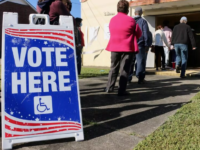Two bills moving through the Louisiana Legislature — House Bill 617 and House Bill 624, sponsored by Rep. Kim Carver (R-Covington) and Rep. Stephanie Berault (R-Slidell), respectively — propose a major restructuring of the state’s safety net services, including SNAP (Supplemental Nutrition Assistance Program) and TANF (Temporary Assistance for Needy Families).
Republican proponents argue the reforms will streamline services and improve workforce outcomes. But critics, including policy advocates and anti-hunger groups, say the changes risk severing vital lifelines for nearly 900,000 Louisianans who rely on these benefits.
At the heart of both bills is a plan to transfer SNAP and TANF administration away from the Department of Children and Family Services (DCFS) and into a newly created agency called “Louisiana Works” within the state’s labor department. House Bill 617 focuses on the agency restructuring, while HB 624 initiates a mandatory job-training pilot program for certain adult SNAP recipients — even though federal work requirements are already in place and active in Louisiana.
“SNAP is about hunger—not hiring,” said Sissy Phleger, a policy analyst at Invest in Louisiana, in a recently released issue brief titled “A Misguided Merger.”
“The people most affected by these bills are already doing everything they can to get by in an economy where many jobs simply don’t pay enough.”
A Workforce Strategy That Overlooks Who SNAP Serves
SNAP is the nation’s most effective anti-hunger program. In Louisiana, the most recent data shows that over 69% of recipients live in households with children, and more than one-third are seniors or people with disabilities. Only a small minority—around 15%—are able-bodied adults without dependents.
snap_factsheet_louisiana
Notably, nearly 30% of Louisiana’s SNAP households report earned income — meaning they’re already working, often in low-wage or unstable jobs. For example, 31% of SNAP recipient households in East Baton Rouge Parish reported wages in March 2024, with an average income of roughly $1,570 per month. That’s not enough to get by without help.
The argument that shifting SNAP into a labor agency will incentivize work doesn’t match the data, which show that many recipients are already part of the labor force. Critics warn the proposal instead reframes poverty as a workforce issue, pressuring vulnerable Louisianans to meet bureaucratic requirements to access basic food support.
What the Bills Would Do
- House Bill 617, authored by Carver, eliminates 40 DCFS staff positions by 2027, realigns agencies, and creates the new Louisiana Works agency.
- House Bill 624, sponsored by Berault, requires certain adult SNAP recipients to participate in job training programs — in addition to existing federal mandates.
Both bills are based on recommendations from the Louisiana Workforce and Social Services Reform Task Force (LA WASS), a panel created by executive order from Republican Governor Jeff Landry in 2024. The task force — composed mainly of state agency heads, legislators, and business leaders — was charged with reimagining how the state delivers workforce and social services. But the process drew criticism for excluding voices of program recipients and front-line providers.
What’s at Stake
In 2024 alone, SNAP delivered $1.9 billion in federal food benefits to Louisiana residents, money that flowed directly into local economies through nearly 4,400 authorized retailers across the state.
These programs don’t just support individuals — they boost the entire economy. According to the USDA, every $1 in SNAP spending generates $1.50 in local economic activity. Stripping or rerouting them could destabilize a system that helps keep families fed and businesses afloat.
While the LA WASS final report describes a vision of “seamless, modernized services,” the reality on the ground tells a more complicated story. For instance:
- 81% of SNAP terminations are due to administrative issues, not financial ineligibility, with most reapplying within 90 days.
- Integration with other services—like WIC, Medicaid, or housing—is not included in the bills, despite “streamlining” being a central selling point.
- Many parishes lack SNAP Employment and Training (E&T) providers, creating geographic gaps in services the new agency is supposed to manage.
In rural parishes like East Carroll and Madison, unemployment rates exceed 13%, and there are few transportation options or job-training hubs. In these areas, transferring SNAP administration to a workforce agency may only add red tape, not resources.
What Comes Next
Both HB 617 and HB 624 have cleared committee and are headed to floor votes in the coming weeks. While the bills are part of a larger push to reorganize state government under Gov. Landry’s administration, the implications for SNAP and TANF recipients are profound — and immediate.
As lawmakers debate the future of safety net programs, advocates are urging them to center the lived experiences of those who rely on them.
“A $6-per-day food benefit doesn’t keep anyone from working,” said Phleger. “But putting up more hoops to jump through just to get that help might stop people from getting food when they need it most.”




















